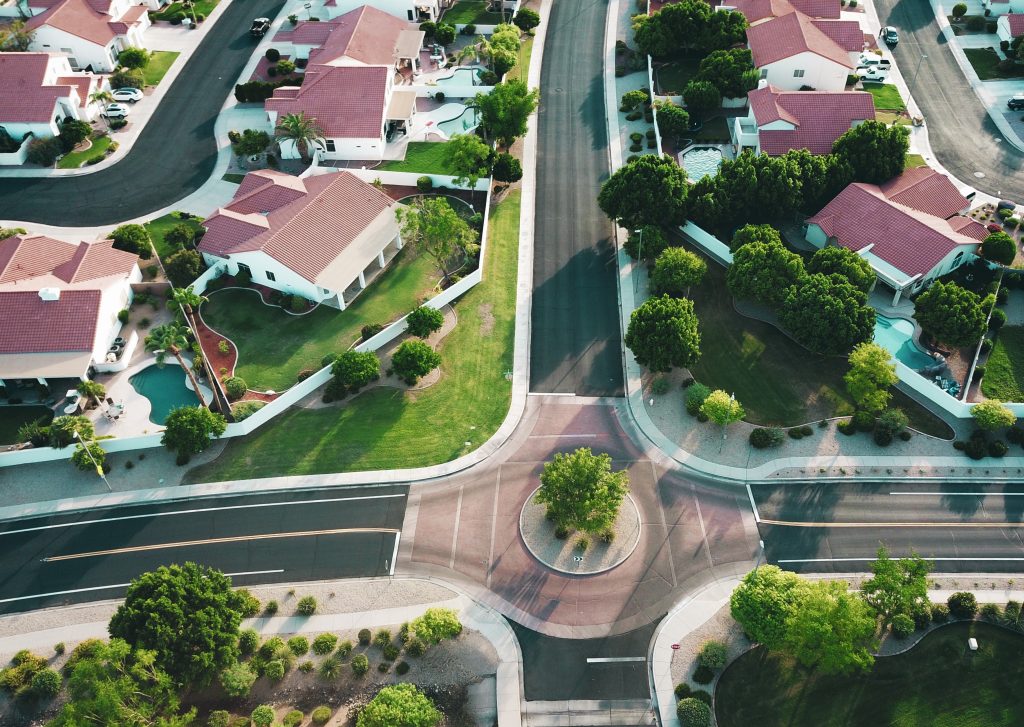Is it Cheaper to Leave the City?
Perhaps you have grown tired of the busy city traffic and noise. The solitude of the suburbs may seem like an answer to all your urban woes. Before you uproot from the city and move to greener pastures, there are many things you and your family should consider. As you weigh the pros and cons of life in suburbia, here are a few unexpected expenses that may have you asking if it is really cheaper moving to the suburbs.
Hidden Costs of Moving to the Suburbs
Hidden Cost #1 Gas and Transportation
Most suburban neighborhoods do not have efficient public transportation, so you will need a vehicle to get around. Since things are more spread out, you will spend more time completing daily errands. In addition to the extra drive time, you will also spend more money on fuel each month .
Moving to the suburbs means that you will also have a longer commute if you work in the city. Remember to include the cost of tolls, parking, or public transportation when calculating your monthly expenses. According to the Housing and Transportation Affordability index, suburban commuters pay 15% more each year in transportation costs. This figure surges up to 28% in more inaccessible locations.
Hidden Cost #2 Property Maintenance
Homeowners can predict some expenses of property maintenance, but nature has its own plans. If you live in an apartment complex, your responsibility begins and ends at your doorstep. Any problems with the roof, basement or foundation fall on the shoulders of the building management.
However, there is greater liability when you move to the suburbs. Homeowners are responsible for damages from storms, flooding, and trees on their property. A burst water pipe or hail storm is more costly than you might expect. These out-of-pocket expenses may have you thinking whether it’s really cheaper moving to the suburbs.
Hidden Cost #3 Property Taxes
Property taxes are subject to increases every year. New laws and gentrification can also affect how much you pay annually. When the value of your home or neighborhood goes up, so do your taxes. What’s more, homeowners only have a short window in which to appeal increases with the local government. If your salary raises can’t keep up with taxes or you have a costly emergency, you could find yourself in serious financial trouble.
Hidden Cost #4 Food
Surprisingly, you actually pay more for groceries in the suburbs. Since there are more supermarkets and grocers in the city, urban food suppliers lower prices to beat out the competition. Although you may have more space in the suburbs, you also have fewer shopping choices. However, as a city grows so do the variety of products available, if you don’t mind driving.
Hidden Cost #5 Energy
Opposed to city dwellers, suburbanites spend significantly more for power and energy. This is largely caused by HVAC costs and warm air escaping your house. Replacing doors and windows can help reduce your bills. However, energy costs will be a big portion of your monthly budget.
Before you decide to move to the suburbs, take some time to create a budget. You should also research the average property expenses for the neighborhoods where you would potentially live. While you may think it’s cheaper moving to the suburbs, there are several hidden costs you should take into consideration.
Read More
- The Cost of Living in the Suburbs
- Living in the Suburbs: The Commute
- Is Your Car an Asset or a Liability?

Jenny Smedra is an avid world traveler, ESL teacher, former archaeologist, and freelance writer. Choosing a life abroad had strengthened her commitment to finding ways to bring people together across language and cultural barriers. While most of her time is dedicated to either working with children, she also enjoys good friends, good food, and new adventures.


